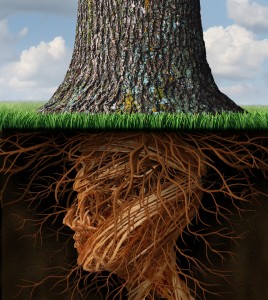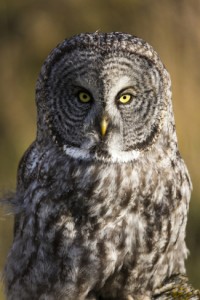Welcome! I'm Cael Cohen (formerly "Cael Diane Zorn"), award winning university educator, eLearning expert, philosopher, educational researcher, passionate storyteller, drummer and birder. My specialty is helping undergraduate students and life-long learners transform their lives by becoming better critical thinkers and more confident, thoughtful and reflective reasoners and decision makers. My courses enhance learners' autonomy and ignite independent thinking. Through my teaching assistant training and faculty development workshops, speaking engagements, research, and media appearances, I inspire others to promote deep learning, experiment with improving learning experience and environments, educate for social change, and adopt new technologies. My undergraduate degree is in philosophy from University of Toronto's, Victoria College. I have a Master degree in philosophy from McMaster University. I completed the course work towards a PhD in philosophy at York University, and then transferred to the Ontario Institute for Studies in Education at the University of Toronto. I completed and defended my PhD in philosophy of education at OISE in December 2010. Check out my CV.
THE EDUCATOR
I have been a university educator for over 20 years. I am currently pioneering in gamification and choose your own adventure course design. In 2007, I was the second university instructor in Canada to provide video podcasts of my lectures. Accounts of my pedagogy, course design and use of teaching technologies have been reported on CBC Radio, CTV News, Toronto Sun, Metro News, 680 News Radio and in other media. I was awarded: United States Distance Learning Association 2008 Silver Award for Excellence in Distance Learning Teaching; York’s President’s University-Wide Teaching Award 2007; and York’s Faculty of Liberal Arts and Professional Studies Dean’s Award for Excellence in Teaching. I have nominations for: Schulich School of Business Teaching Excellence Award; Commonwealth of Learning Excellence in Distance Education Teaching 2007-08; and Ontario Council of Universities 2006 Teaching with Technology Award.


My Open Open-Ended Manifesto for my Growth as an Educator:
- Strive to enable reciprocal and adaptive Enactive learning environments. Relentlessly practice recognizing that learning emerges from self-organized processes that span and interconnect brains, bodies, technologies, and environments. I see learners, learning environments, instructors, technologists, and technologies, as inseparable interactions that enact teaching and learning, not as independent realms. I see learning environments as constantly evolving dynamic systems reaching beyond the confines of design and reciprocally evolving via interactions characterized by non-equilibrium.
- Create diverse learning eco-systems. My conception of teaching and learning is holistic and shaped by the metaphors of “ecology” and “eco-systems,” and corresponding notions of interconnectedness. I believe that what students learn is not neutral. Since education always presupposes an interpretative or theoretical framework, drawing on Lorraine Code’s (2006) model of Ecological Thinking, I value an ecological pedagogical model that recognizes relationships within and among institutions of knowledge production, their effects within the social-political structures within them, their negotiated, dialogical inter-workings and social-environmental implications (Code, 2006 & 1995).
- Learners have bodies. I aim to not deposit information into the heads of learners and to be mindful that emotions (Boler, 1999) and experience belong in the classroom. Since I do not believe that knowledge flows in only one direction from teacher to student, in my teaching style I shun the “banking” model, where the teacher’s role is “to ‘fill’ the students by making deposits of information which the teacher considers to constitute true knowledge,” and the student’s job is merely to “store the deposits” (Friere, 1972). This model incorrectly posits the teacher as a disembodied, neutral purveyor of an exclusive truth. It also suggests that students live in empty spaces without experience, and are receptacles of the intellectual, private property of the teacher. My belief that learners are not disembodied brains implies the need to respect individual differences between learners and various learning styles.
- Encourage deep learning, not surface learning. Affirm and reward process over product. Strive to practice a cognitive apprenticeship model of learning, including actively and consciously coaching, mentoring, modelling, and enabling reflection, while honoring imagination. Always face, head-on, the teaching tension of whether to cover more content or uncover long-term, life-long learning and deep engagement with the material and with the process of learning. Practice mindful-awareness and radical noticing of growth.
- Demonize scholarly isolation and exile aggressive competitiveness. Enable the enaction of collaborative teaching and learning; enable the co-determination of self and other. Learning environments and learning take form as a result of emergent and self-organized processes that span and interconnect students, teachers, technologists, software, hardware, objects and other resources. The act of knowing involves the complex interplay of brain, body, world and technology. I do not believe that learning is constructed actively or interactively, a commonly held social constructivist view. I believe social construction needs to be replaced by enactivism. I see learning environments as complex, dynamic and organic networks of social, cultural, and institutional relations within which individuals strive to realize their potential personhood. I am committed to helping individuals navigate the dynamic process by which they develop their subjectivity, and relate to one another and to their environment. Thus, I aim to seize every opportunity to promote collaborative teaching and learning, in addition to mentoring and coaching learners.
My research is grounded in and consistently draws on what is called an Enactive Approach, originally developed by Evan Thompson and Francisco Varela in the early 1990s. Enactivism argues that cognition emerges from a reciprocal relationship between an acting organism and its environment. Enactive approaches share the fundamental belief that mind, body and world are one unitary structure. If you are interested, check out my PhD thesis entitled, Enactive Education: Dynamic Co-Emergence, Complexity, Experience, and the Embodied Mind. My PhD Thesis.
Works in Progress: I will be collecting data in fall 2018 and winter 2019 concerning the effectiveness and student experience of a gamified, choose your own adventure course that I designed for the Schulich School of Business. I am also researching and writing an academic journal article on deep disagreement.
The philosophers who have had the biggest influence on my thinking are: Evan Thompson, Maurice Merleau-Ponty, John Dewey, Don Ihde, Megan Boler, Brent Davis and Martin Heidegger.
The books that have had the greatest impact on my thinking, philosophy and worldview are:
- Evan Thompson's, Mind in Life (2007) and Varela, Thompson and Rosch's, The Embodied Mind (1991).
- Merleau-Ponty's, Phenomenology of Perception (1945) and Structure of Behavior (1963).
- John Dewey's, Experience and Nature (1958), Human Nature and Conduct (1922) and How We Think (1910).
- Don Ihde's, Technics and Praxis: A Philosophy of Technology (1979), Existential Technics (1983), and Technology and the Lifeworld: From Garden to Earth (1990).
- Brent Davis', Engaging Minds: Changing Teaching in Complex Times (2000) and Inventions of Teaching: A Genealogy (2004).
- Lorraine Code's, Ecological Thinking: The Politics of Epistemic Location (2006).
- Shaun Gallagher's, How the Body Shapes the Mind (2003).
- Alan Watts', What is Zen? (2000).
- Francisco J. Varela's, Ethical Know-How: Action, Wisdom, and Cognition.
THE HUMAN BEING
I grew up north of Toronto in York Region, near a small town called Kettleby. (Shout out to readers from York Region.) I recently moved from Toronto, the largest city in Canada, to the small town of Tottenham, an hour north of the city. I believe that the meaning of life is growth. I have been doing philosophy since I was a child, before I knew what philosophy was. I have two prominent personal interests and hobbies: oral storytelling and bird watching.
Oral Storytelling:
I get great pleasure from listening to and engaging in oral storytelling (recited, not read off of a page), in particular folk tales, tales of wonder and ghost stories. I am fortunate and infinitely grateful to have spent two years as an Apprentice Storyteller with an exceptional, highly skilled group of master storytellers: York Storytellers Guild. I was honoured to tell a story, "The Hunter," at the Toronto Festival of Storytelling in 2015. I also researched, created, and led a Guided Historic Ghost Walk that took place near High Park, Toronto, in October 2017. My ghost story walk made Now Magazine's top ten list of Halloween events for 2017.
Bird Watching (Birding):
I have been an avid birder and amateur ornithologist since 1995. My favorite birds are owls, in particular the Northern Saw-Whet Owl. My favorite duck is the Bufflehead. I have a real soft spot for Black-Capped Chickadees and Dark-Eyed Juncos. I have over 300 birds on Birder's Life List. One of my favorite sightings was of a Great Gray Owl during the Great Gray Owl invasion of spring 2005 in Ontario. In winter 2004 to spring 2005, there was what ornithologists call and "invasion" of owls due to a substantial decrease in the vole population in Ontario at that time. I was fortunate enough to have been a close (three feet) from this poor, hungry Great Gray Owl perched on a fence post on Highway 9 near Bathurst Street. This huge and majestic owl landed close to homes and the road looking for food.


